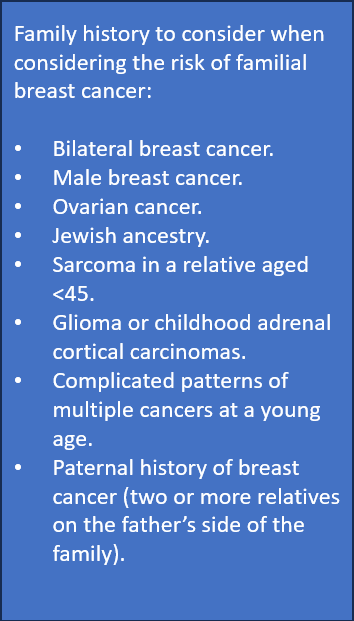Women's health toolkit
This Women’s health toolkit is categorised into sections best representing the needs of women at different stages of their lives.
Breast cancer
Breast cancer is managed in secondary care and GPs are not involved in the organisation of screening mammograms; however, we will see patients with symptoms that may be cancer, and those who are worried about their family history of breast cancer. The subject may also come up when discussing contraception and HRT, if women are concerned about an increased risk of breast cancer.

Having a family history of breast cancer is a risk factor for developing the disease, but specific mutations account for only 5% of breast cancers. Most women, including most women with a family history, will have a sporadic breast cancer rather than one caused by a gene such as BRCA1 or BRCA2. The NICE guidance on familial breast cancer is a useful resource when deciding whether to refer. It requires a detailed family history and gives a list of factors which should be enquired about when assessing risk. In general, if a woman has only one first or second degree relative who was diagnosed with breast cancer over the age of 40 and has none of the extra features listed in the box, then their risk of breast cancer is no greater than population risk and there is no need for referral to a genetics clinic. Women who meet the NICE criteria for referral and are assessed at a genetics clinic may be offered regular screening, prophylactic surgery, or prophylactic treatment with tamoxifen or anastrozole, to reduce breast cancer risk.
More information can be found in the following resources: